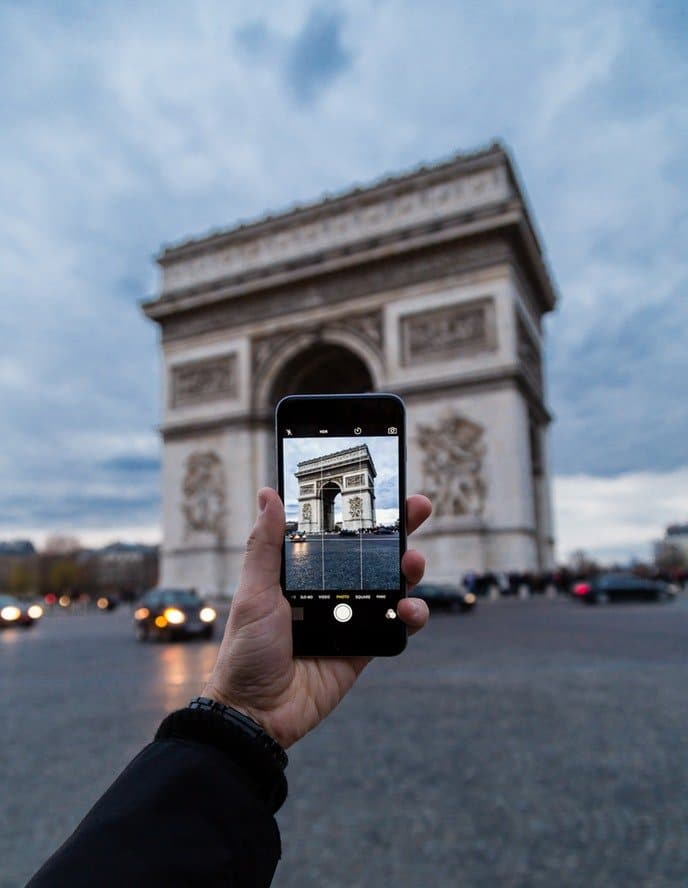As we emerge through the middle of the second decade of the 21st century, things have changed at the consumer’ s mind, prior and after a purchase. More and more tools appear helping the consumer’s research, and they are are constantly changing the way a purchase is made. The intrusion of the internet and the interconnected world, alongside with the massive use of “connected devices”[1], such as smartphones and tablets, have rapidly altered the behaviour of the consumer.
This evolution inevitably affects Tourism industry for good reasons. The wide spread of social networks and the most mature app ecosystem of the connected devices, can work either for or against any individual business in the industry.
TRIPADVISOR: “The reviewer”
Tripadvisor simulates the so called “word of mouth[2]” procedure. Its core feature is an an algorithm based classificatioin of Hotels, Restaurants, Attractions etc. using rating of the visitor’ s experience with that business including establishment, cleanliness, staff and more rating fields.
Tripadvisor Press Center has released the below stats:
- More than 290 million reviews and opinions from travelers around the world.
- More than 5.3 million businesses and properties in 126,000+ destinations, including:
- 950,000+ hotels, B&Bs, and specialty lodging
- 740,000+ vacation rentals
- 3 million restaurants
- 590,000+ attractions
- 230 million mobile app downloads, including 215 million downloads of the core TripAdvisor app.
- Nearly 50% of users visited TripAdvisor via tablet and phone, and the company continues to see industry uptick and engagement on mobile devices.
STUDY #1
According to a recent study conducted on behalf of TripAdvisor[3], Millenials[4] will have on average 2915$ on their travel budget and a key factor of choosing their accommodation is the proximity to one or more key attractions (88%). A deal breaker though, will be a free in room wi-fi service (55%). For the end, 87% of them will carry a smartphone!
Things are slightly different for GenX[5] people, because the have 5.700$ on average for travel budget and they are willing to spend more “because i/my family deserves it” (50%). 86% of Generation X relies on online reviews for choosing an accommodation and another 40% considers the “breakfast included” a deal breaker. Last but not least, 73% of them will carry a smartphone on their holidays!
Totally different are the stats for Baby Boomers[6]. They have on average 8736$ on their travel budget. 41% of them willing to spent more, just to visit a place from their wish list. 76% of them consider the previous experience a key factor of choosing an accommodation and 52% of them want to visit a country just because they want to see the culture. Also, 34% of them will consider in room wifi as a deal breaker.
Conclusion
The generation gap is apparent between the different age groups. Apart from the differences in several aspects, we can clearly see the wide use of the mobile devices and the internet. Why would you like a wifi service if not connect to the internet? Why would you carry a smartphone if not connect to the internet?
Google: “The new rep”
After examining Tripadvisor’s research results, we will focus our research to the use of mobile devices and how it is changing the consumer behaviour especially for the Travel Industry.A very indicative article on this subject is written by Lisa Gevelber, Google’s VP of Marketing and Oliver Heckmann[7].
Mrs Gevelber divides the “journey” to the purchase into four steps or the so-called “Micro-moments”[8]. The four micro moments according to Google are:
- The I-want-to-know moment
- The I-want-to-go moments
- The I-want-to-do or I-want-to-buy moments
Micro-moments happen before and during the travel experience and affect the final decision of the consumer. In the past year, mobiles’ share of travel visits has grown by 48%[9] while conversion rate for travel site (on mobile) grown by 88%[10].
Google’s mobile queries within the travel category have increased more than 50%. What those data practically mean? That people are increasingly using their mobile phones to plan their travel but in smaller moments and more sessions.
Last year’s changes in Google’s search algorithm, reveal the big picture of internet’s use and confirms both the stats and the assumption that people use their devices as their personal assistant in all aspects of their everyday life. It is yelling to managers that people are online and they want to buy things!
Google worked with Luth Research in an effort to reveal those miro-moments and the results are outstanding.
As it is shown above, the user named Amy in her “quest” to plan this trip, had in total 419 digital moments in just two months. She made 34 searches, watched 5 videos, and made 380 web page visits. And 87% of these moments happened on mobile.[11]

Conclusion
Travellers of our times are using the web not only for informational purposes but also to inspire and get in action. People are using the web to get a glimpse of their future experience and create themselves expectations about their journey. Lastly, they use their connected devices when they are in their destination to find things to do such as cozy restaurants, ancient sites and museums, events and atrractions, tours and cocktail bars. The fascinating thing is that all the indispensably media are available for them to use and most of them are totally free!
Micro-moment oriented marketing can strategically place your business in the right micro-moment and fulfil the request of the consumer when it emerges. You can take one of the five video views, be the website to be bookmarked from a huge pool of 380 webpage visits and appear in the most relevant search of the 34 that Amy will type in Google’s search field. Of course if you have not a mobile friendly presence you will probably lose 87% of the consumers.
[1] A smart device is an electronic device, generally connected to other devices or networks via different wireless protocols such as Bluetooth, NFC, WiFi, 3G, etc., that can operate to some extent interactively and autonomously. wikipedia.org
[2] An unpaid form of promotion in which satisfied customers tell other people how much they like a business, product or service . www.entrepreneur.com/
[3] TripBarometer 2016 Travel Trends, IpSos for Tripadvisor
[4] Millenials are people between 18-34 years old
[5] Generation X are people between 35-64 years old
[6] Baby Boomers: people over 65 years old
[7] https://www.thinkwithgoogle.com/articles/travel-trends-4-mobile-moments-changing-consumer-journey.html
[8] Micro-moment: an intent-rich moment when someone acts on a need.
[9] Google Analytics, U.S. data from May 2014 to May 2015
[10] Google Analytics, U.S. data from May 2014 to May 2015
[11] https://www.thinkwithgoogle.com/articles/travel-trends-4-mobile-moments-changing-consumer-journey.html





